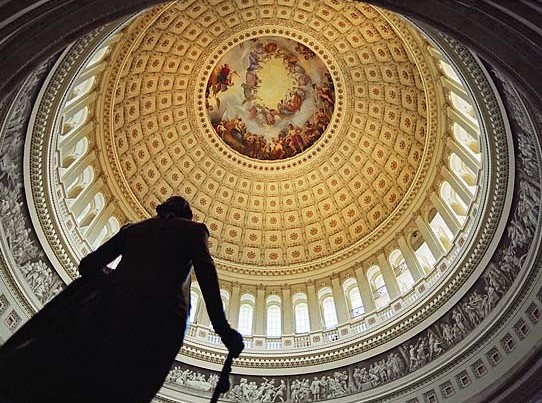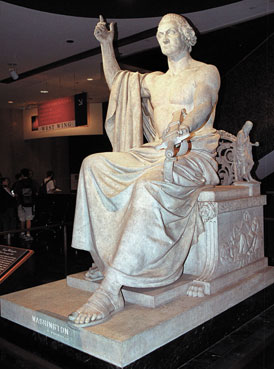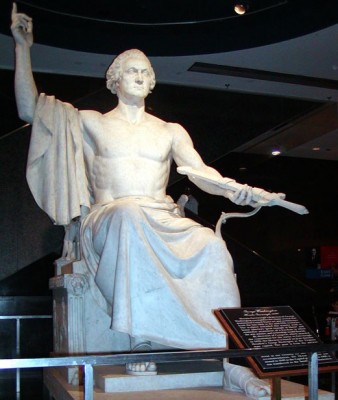I think it's important to know the actions that were focused upon by the founders in order to really understand what principles they had that were either exclusive or non-exclusive to Christianity. It's a very complicated mater..
If I may say...
There are many good things that the Founding Fathers were about when it came to the development of our nation's history. Other scholars like David Barton have spoken on that before and I am glad for it:
I remembered where I checked out some of Barton's material before since we had to study it in highschool....specifically his book "Original Intent." The Founding Fathers were often noted for being FAR from representing the people since many times the people were outright ignored. Especially with slavery. Granted,
there were indeed those who were Black Founding Fathers and even that much has often not been represented in history the way it was......
despite what was present in the history of the nation. - as other scholars like David Barton speaking in-depth on the matter.
With Barton's interview, some of the other things I really enjoyed hearing from the man were near the end when it came to him noting why believers need to be involved in the Civil Arena in light of what Christ said in Luke 19:13 on learning to occupy till He comes. ...and showing the Founding Fathers who supported it. Moreover, there were plenty of nations around the world using Christian language since it was the national religion of many countries (i.e British Empire), even though what was done in the name of Christ (as with imperialism and colonialism, etc) was not godly.
Furthermore, one of the main things I had some serious concern with was the reality of where the Founding Fathers were clearly into a lot of things, despite all Christian references, that were not Biblical...and in showing Biblical references in what they did, I thought it'd be beneficial to show everything else at some point of where many things did contaminate much of what they did. Specifically, their focus on FreeMasonry and the other issues done such as mistreatment of American Indians in a myriad of cruel ways. I don't think there's ever any way that such things can be white-washed away as being less than evil/condemning....
Additionally, the treatment of Native Americans is something that can never be taken lightly when it comes to the ways that they were often dismissed/not respected or represented well (more
here and
here).
I have noted the same before to one of my friends when he was talking on how the U.S was originally "Christian" - and I have sharply disagreed for a myriad of ways that one cannot be historically honest/ignore the ways that a lot of history with the Founding Fathers was not godly (more shared in #
75, #
27 , #
56 , #
61 #
63 and #
110 ).
From the beginning of our nation's history, what has been occurring is others realizing what has been practiced within the world of Christianity has really been a combination of Christian concepts and other Non-Christian ideas. More so
Moralistic Therapeutic Deism
In our times, t
here does seem to be a return to Deism by many and it's not surprising in light of how often those in the history of the U.S have been propped up by others as examples of Christianity when they were in fact opposite of that.
For reference:
Psywar: The Real Battlefield is the Mind
The Hidden Faith of The Founding Fathers 2010 - YouTube
George Washington was a freemason and a deist. He wouldn’t take communion with his wife. ...and he was also what's known as a Unitarian ..and due to his Unitarian views, held stances that supported both Christian principles and non-Christian beliefs such as Deism and other things. For reference:
One can also go
here and
here. John Adams spoke harshly at times about Christianity and religion in general in his private correspondence. He was a Christian
Unitarian that believed the church service was good for everyone because it promoted morals and values among the masses. Thomas Jefferson, as a Diest, went so far to deny the divinity of Christ. He even created his own compilation of Jesus’ life from the gospels, which he entitled,
“The Life and Morals of Jesus of Nazareth.” He removed all evidence of the “supernatural” for a presentation of Jesus as a good moral teacher who is only to be admired, not worshipped. And there are other examples of where things they did/began were FAR from being what the Lord had in mind with Biblical laws
In example, there are pictures showing the Founding Fathers as gods..which is not surprising seeing that
most of the Founding Fathers were very much into Freemasonry. There was one statue I remember seeing of George Washington IN D.C that had him in the form of a Greek GOD when I was visiting the place back in 2009. Seemed like they were trying to express the regal nature the president seemed to have and take it to another level, just as others have done often..
Additionally, the dome of the Capitol features in its occulus an incredibly significant painting that reveals the philosophical, spiritual and political aims of the Founding Fathers. Right in the very centre of the cast iron dome in the U.S Capitol is a painting of George Washington, ascended to the pantheon of ancient greek deities.


Astonishingly poor theology for 'one nation under God', but evidence of the high esteem George was held in by his 19th century successors. The building was completed (from memory) in the 1820s.
And there are many others besides that.
It's not hidden. I'm surprised many more don't talk on the ways the Founding Fathers were often deified multiple times and no one said anything on it for centuries. I'd wager that many don't tend to look for it due to assumptions they've already accepted on the Founding Fathers being fully dedicated believers and soldiers for Christ as has often been said by others in the Religious Right and others who had an idea of Christianity in mind which they supported/felt the FOunders did as well ( with the use of Biblical Language/scripture in their speeches being what influences others
to see the history of the nation as being Christian in origin ), thus causing confirmation bias and people seeing what they have already been trained to see/zoom in on....
even when the other darker aspects of what were present in the nation's founding/consistently growing are out in the open...from the monuments of our capitol to the things presidents swear into before taking office (like
Bohemian Grove, if not aware of it - very dark reality )...and a lot of other mess.
But all of that is noted to say that what was advocated as 'Christianity' in the history of our nation - and still is by certain camps in the Religious Right - is now being revealed for what it always was when it comes to the many ways it went counter to Christ - and how those claiming to practice Christianity are being revealed for what they have always practiced...





